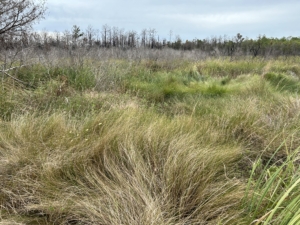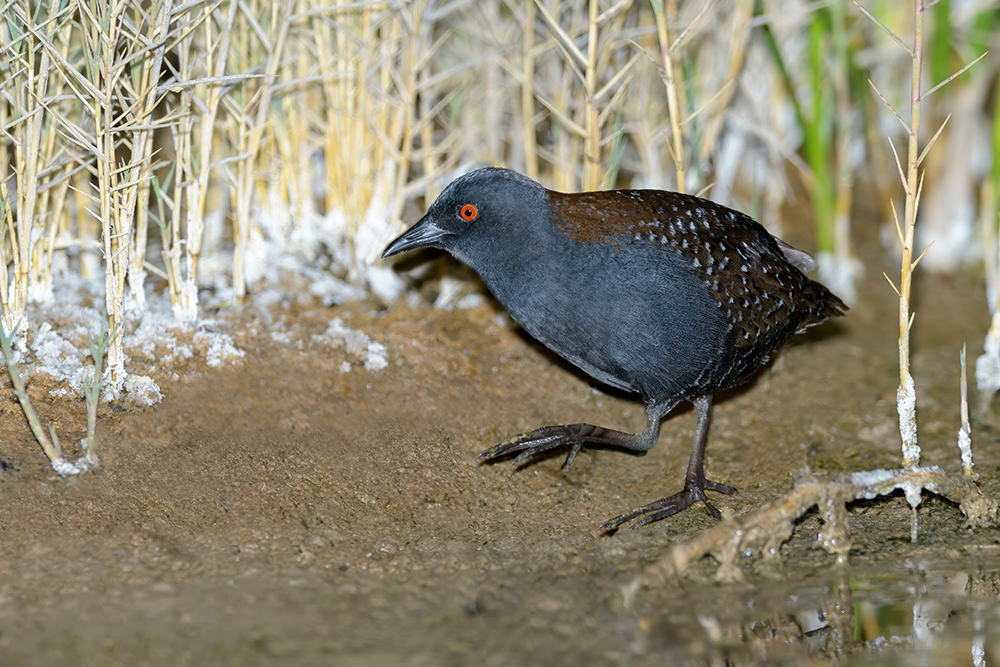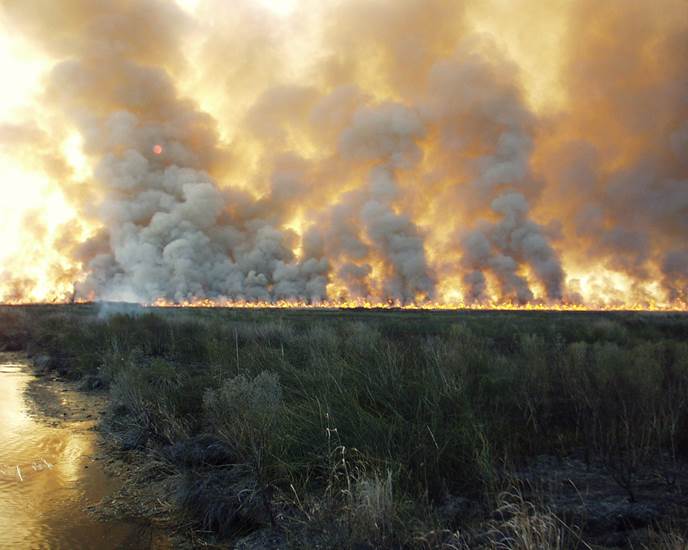Black Rail Adaptive Management Project
The ACJV and U.S. Geological Survey (USGS), with support from East Carolina University, are engaged with partners in a multi-year collaborative project to develop an adaptive management framework to evaluate two approaches to habitat management for Black Rails. The first approach involves assessing the relative effects of fire and herbicide for reducing woody vegetation and improving Black Rail occupancy. The second assesses the effect of supplemental irrigation on Black Rail occupancy. In 2024, our contractor, Amy Schwarzer, completed standard protocols and data sheets for partners interested in monitoring Black Rails, vegetation, and hydrology for the project. Partners that adopt these protocols will help us improve our understanding of how to implement priority management actions for this species. Interested partners should contact Craig Faulhaber (craig_faulhaber@fws.gov) for more information.

Black Rail habitat in North Carolina. USFWS
State Working Group Meetings in South Carolina and North Carolina
ACJV staff provided facilitation and organizational support for two state-level working groups in 2024. South Carolina Black Rails, led by staff from the South Carolina Department of Natural Resources and Nemours Wildlife Foundation, began in February and met quarterly in 2024. The group seeks to advance impoundment management and creation, restoration, and enhancement of wet pastures and fields for Black Rails. The North Carolina Black Rail Working Group, led by staff from the North Carolina Wildlife Resources Commission, met in November 2024. The group provides a venue for information sharing and coordination for partners interested in Black Rail conservation.
New Student Hired to Analyze Black Rail Survey Data
The ACJV has hired a new Pathways Fellow who we hope can join our team this winter! This position is co-funded by USFWS Northeast and Southeast regions. The Fellow will be responsible for processing the backlog of Black Rail Automated Recording Unit (ARU) data that many partners have collected but do not have the capacity to analyze. Although ARUs, compared to intensive field surveys, are an easier way to survey super secretive birds like the Black Rail, they require significant resources to analyze and interpret the collected sound data. Our Pathways Fellow will be working directly with partners from Maine to Florida, through the Black Rail ARU working group, to address their backlog of ARU data. This work will help to accelerate our understanding of population status, trend, distribution, and habitat relationships for this cryptic species while also improving the models used to detect Black Rail vocalizations to make future ARU analysis faster and easier.
State Guidance Documents – Update
We continued to meet with Florida partners in 2024 to identify priority sites and priority site-specific, near-term management actions for Black Rails to help guide funding decisions. We are on track to complete a state guidance document for Florida in early 2025, and we plan to engage partners in other states in the coming years. In the meantime, ACJV staff already are seeking support for some of the actions identified during our partner meetings.



